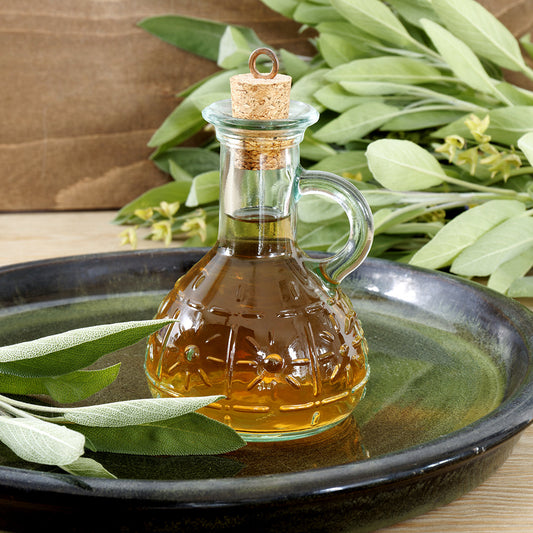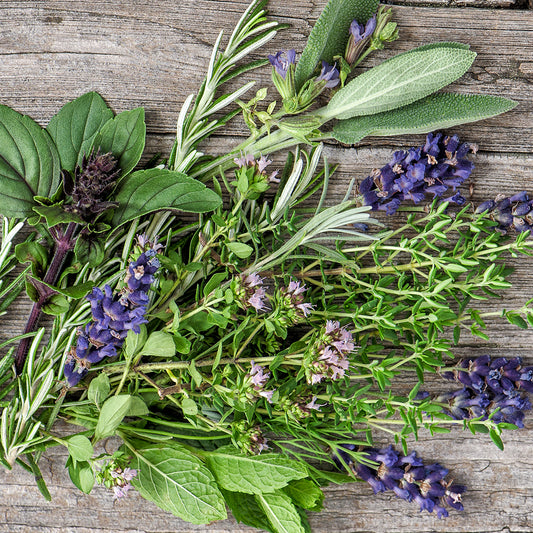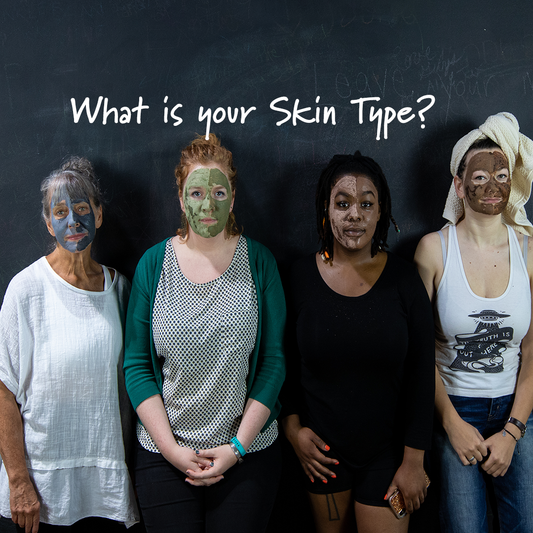Vinegar Infusions with Herbs
The versatility of vinegar has been known for thousands of years. The Babylonians were the first to flavor vinegar with herbs and spices.
Hippocrates described its medicinal properties. During World War I, it was used to treat wounds.
 From skin and hair care to the kitchen and cleaning cupboard, multipurpose vinegar is one of the most useful products to have in your home, especially with the addition of therapeutic and/or flavorful herbs.
From skin and hair care to the kitchen and cleaning cupboard, multipurpose vinegar is one of the most useful products to have in your home, especially with the addition of therapeutic and/or flavorful herbs.
-
Skin & Hair Care: Herbal vinegars make great facial toners, hair rinses, and body splashes.
- Natural apple cider vinegar works best. Read labels carefully because some “apple cider vinegars” are just white vinegar with color and flavoring added.
- Natural apple cider vinegar works best. Read labels carefully because some “apple cider vinegars” are just white vinegar with color and flavoring added.
-
Cooking: Infused vinegars can be used in salad dressings, marinades, and sauces as well as added to cooked dishes to brighten the flavor.
- Several kinds of vinegar are available, each of which adds a unique flavor. Try different types of vinegar or even combinations of vinegars.
- Several kinds of vinegar are available, each of which adds a unique flavor. Try different types of vinegar or even combinations of vinegars.
-
Cleaning: Place infused vinegar in a spray bottle for a great natural all-purpose cleaner. Use as a laundry rinse.
- White vinegar
- White vinegar
-
Canine Care: Helps repel fleas and promote a shiny coat.
- Apple Cider Vinegar
Basic Method for Infusing Vinegar
Although the focus of this blog series is on “herbs,” you can infuse many different types of plant material.
 The method for the infusion of different plant materials will be similar and you can find specific methods for fruits, flowers, and spices on the internet. The possibilities are endless!
The method for the infusion of different plant materials will be similar and you can find specific methods for fruits, flowers, and spices on the internet. The possibilities are endless!
- You can use fresh or dried plant material for infusion. Be sure that fresh material is clean and dry.
- Use glass containers to make and store vinegar infusions. Metal containers and lids will react with acidic vinegar, and resins can leach out of plastic and leave an aftertaste.
- If you will be using the vinegar for cooking--sterilize your bottles or jars and let them dry thoroughly. If not for culinary use, be sure bottles are clean and dry.
- Place herbs into the glass container and fill it with vinegar. The ratio of herbs to vinegar depends upon the type of herb or plant material and the type of vinegar. For a simple herbal infusion, a good place to start is with 3 tablespoons of dried herbs or 3-4 sprigs of fresh herbs per pint of vinegar. For other plant material use about 1 cup for every pint of vinegar.
- Cover the container tightly and place it in a dark, cool place.
- Allow the vinegar to steep for 1-4 weeks. The time depends on the material infused and the strength of the infusion you want to achieve. I gently shake the jar every few days.
- When the infusion is complete, strain out the herbs to prolong the life of your vinegar, and pour the liquid into glass containers (sterilized for culinary use). Label and date your infusion.
- Proper storage is important for culinary vinegars. It’s best to keep them in a cool, dark place and use them within 4-6 months. Refrigeration will help retain flavors longer. If you notice anything odd, like mold or cloudiness, discard it immediately.
Vinegar for Hair & Skin Care
Hair Care
Herbal hair rinses can provide deep cleansing, soothe irritation, prevent dandruff, stimulate the scalp, lighten, darken, or enrich natural hair color, condition, and add shine to dull hair.
 Unlike commercial conditioners, herbal hair rinses have no harmful ingredients, leave no harmful residues, and rinse clean.
Unlike commercial conditioners, herbal hair rinses have no harmful ingredients, leave no harmful residues, and rinse clean.
We sell a complete line of Apple Cider Vinegar Rinses. We also have a great article that explains how to “Make Your Own Natural Apple Cider Vinegar Hair Rinse.”
For a list of great herbs for hair please see our blog about "Hair Care Herbs".
NEVER use undiluted vinegar on your hair. The concentration of vinegar to water varies depending on your hair type (typically dry scalp likes less ACV and oily scalp likes more).
A simple recipe for herbal vinegar hair rinse:
- 1 to 2 tablespoons Rosemary Infused Vinegar** (prepared as directed above)
- 2 cups water
Combine infused vinegar and water in a spray bottle or measuring cup and shake or mix well. After shampooing apply the vinegar rinse. Massage into hair and scalp and pay special attention to the ends. Let it sit for a couple of minutes. Rinse or leave in.
**You may need to experiment to find a dilution that works best for your hair type (dry scalp likes less ACV and oily scalp likes more). I suggest you begin with 1 tablespoon of ACV to 16 ounces (2 cups) of water in order to judge how your hair and scalp will feel.
Skin Care
Herbal vinegars a great, inexpensive addition to your skincare regimen. We sell Herbal Facial Teas that you can infuse in water and or vinegar.
For a list of great herbs for facial skin please see our "Facial Care Herbs" page.
 Simple Oily Skin Toner Recipe
Simple Oily Skin Toner Recipe
- 1 tablespoons of Sage & Basil infused vinegar
- ½ cup cool water
- Use after cleansing
- Rinse with lukewarm water and pat dry.
Itchy Skin Recipe
1/2 to 1 cup chickweed-infused vinegar
Add chickweed vinegar to a tub of very warm (not hot) water. Swirl around to mix.
Soak for 15-20 minutes and pat dry.
Minor Sunburn Relief Recipe
Apple Cider Vinegar (ACV) soothes burns and speeds healing. The acetic acid in ACV eases itching. Calendula has been used for centuries as a healing and soothing substance for skin irritations like cuts, minor burns and sunburn.
Add 1 cup calendula-infused vinegar to a tub of lukewarm water. Swirl around to mix. Soak for 15-20 minutes and pat dry.
Alternatively, combine 1 part of the infused vinegar to 8 parts water and use this mixture for a compress to irritated areas.
Vinegar for Pet Care
Your pooch can benefit from the same herbal vinegars we use to make our hair and scalp healthy.
A diluted vinegar rinse applied after bathing helps control dandruff, calms skin problems, adds shine to the coat, and helps remove odors. An herbal vinegar infusion is also a great natural way to help repel fleas.
We make a Fresh Fur Vinegar Rinse or you can make your own.
Make a Flea Deterrent using herbs like rosemary, mint, or lavender.
Place 8 ounces of warm water into a container
Add 1/2 - 2 tablespoons of herbal vinegar and mix
After bathing, massage the rinse through the fur. Towel dry--there is no need to rinse. You can also place the mixture in a spray bottle.
Vinegar for Cooking
There are so many recipes for culinary-infused vinegar, that it can be a bit overwhelming. I started by making simple infusions with herbs that I enjoy. Then with my gourmet cook hubby, Howard, we began making vinegars just for special dishes, like mint vinegar for lamb!
Using the Basic Method for Infusing Vinegar choose herbs that complement foods you like for marinades or dressings. Some easy herbs to use are chives, mint, rosemary, oregano, dill, tarragon, or thyme.
I make a splash for baked salmon using equal amounts of rice, wine, and balsamic vinegar that are infused with tarragon and dill. I brush on some of my garlic-infused olive oil (recipe in the October 24th blog) and the vinegar--and it is oh so yummy.
 I also make Fig & Spice Vinegar sauce that we use on so many things!
I also make Fig & Spice Vinegar sauce that we use on so many things!
2 whole cloves
8 dried mission figs
3 whole peppercorns
4 whole allspice berries
10 ounces apple cider vinegar
2 ounces of balsamic vinegar
Cut figs in half and mix with vinegar and spices in a bowl. Steep in the refrigerator for at least 5 days. Strain and reserve the vinegar in a sterile container. Refrigerate.
Vinegar for Cleaning
Our family has been using homemade cleaners for quite a while and infused vinegars are one of my staple cleaners. Vinegar by itself is very effective at cleaning and deodorizing, but when infused with herbs you get even more cleaning power. Infusions are safe, effective, save money and I can create the scents I like! As the vinegar scent disappears there is a light scent of herbs that remains.
For general cleaning, I have two favorites, a Lavender and Thyme infusion and a Citrus Peel infusion. Other good cleaning herbs to infuse are Pine Needles, Rosemary, Oregano and Cinnamon Bark
Lavender & Thyme Cleaning Infusion
- 1 quart of white vinegar
- 2 Tbsp. dried lavender buds
- 3 Tbsp. dried thyme
Place ingredients in a clean, dry glass jar. Let it steep in a cool, dark location for at least a week. Shake it a bit every day. Strain herbs.
Citrus Peel Cleaning Infusion
(Note: If you don’t eat a lot of fruit, you can save peels in the freezer until you gather enough. Just be sure to thaw and dry, completely before infusing.)
Peels from 5 to 6 citrus fruits (lemon is my favorite, but I have also used limes and oranges)
Place peels in a large, clean, dry glass jar. Add enough vinegar to completely cover the peels. Cover and shake well. Let it steep in a cool, dark location for at least about 2 weeks. Shake it a bit every day. Strain peels.
How to Use Infused Vinegar for Cleaning
For simple jobs add water at a ratio of 1 part vinegar to 1 part water in a spray bottle. For tougher jobs I may make use more vinegar.
Use as you would any spray cleaner: spray directly on countertops, cutting boards, toilets, tile, sinks, and mirrors, just about any surface.
If you are unsure as to whether or not it's safe to use, wipe a little cleaner on a small, inconspicuous spot and allow it to sit for several hours as a test.
Use the 50/50 dilution to safely clean toys.
I use herbal vinegar, diluted 50/50 with water, to mop my wood floors. There is no need to rinse.
Natural fabric softener: I add about a 1/4 cup to the softener section of my washer. For those who wash diapers, I always did a second rinse and an infused vinegar is great to use in the final rinse cycle for soft, fresh-smelling diapers.
Share your favorite vinegar recipe or a comment!






